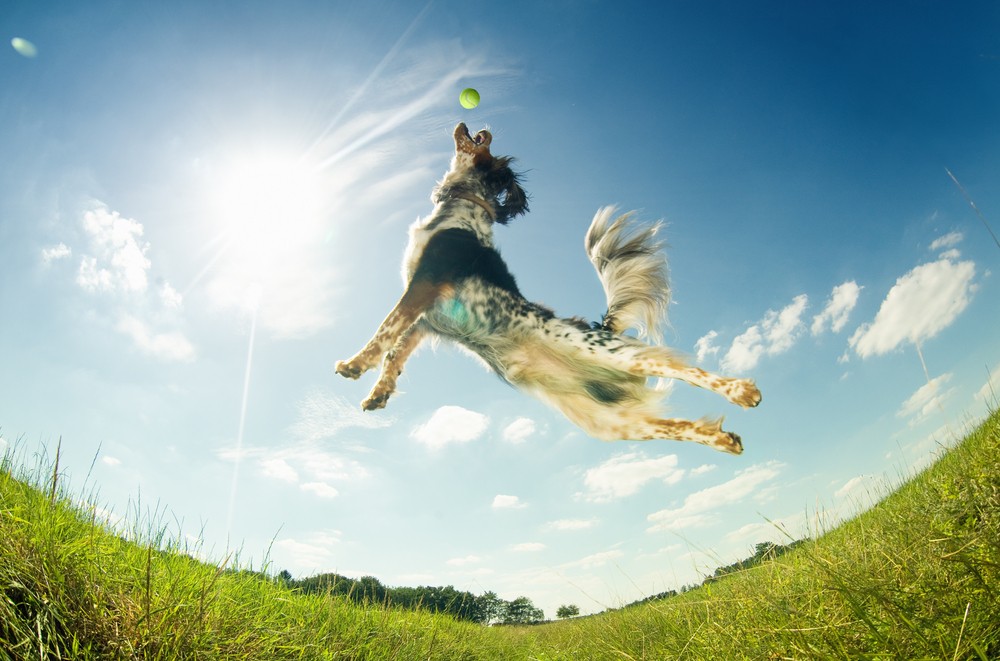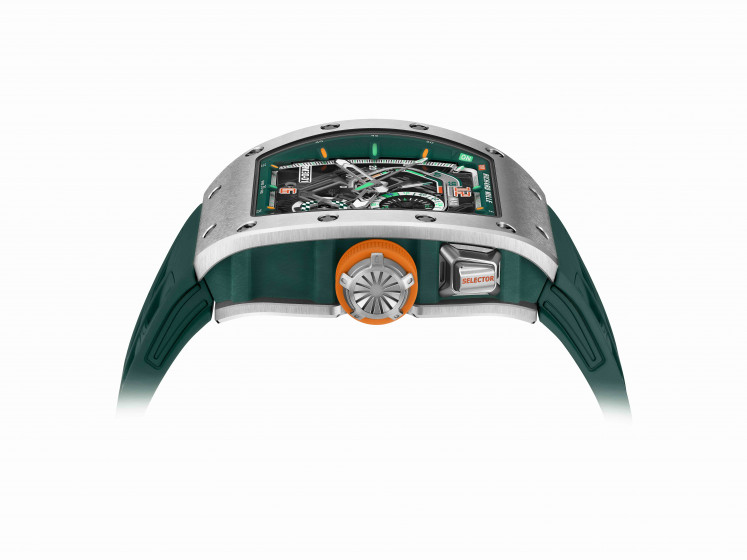Popular Reads
Top Results
Can't find what you're looking for?
View all search resultsPopular Reads
Top Results
Can't find what you're looking for?
View all search resultsWant to live longer? Get a dog
As the Year of the Dog wags its way into our lives, The Straits Times looks at the wide-ranging research into man's best friend
Change text size
Gift Premium Articles
to Anyone
D
og owners have a lower risk of death due to cardiovascular disease or other causes, a team of Swedish scientists found during a 12-year follow-up study.
"A very interesting finding in our study was that dog ownership was especially prominent as a protective factor in persons living alone, which is a group reported previously to be at higher risk of cardiovascular disease and death than those living in a multi-person household," said lead junior author of the study Mwenya Mubanga, a PhD student at the Department of Medical Sciences and the Science for Life Laboratory, Uppsala University.
Read also: Soon, you can have heart-to-heart talk with your pet
"Perhaps a dog may stand in as an important family member in the single households."
The results showed that single dog owners had a 33 per cent reduction in the risk of death and an 11 per cent reduction in the risk of heart attacks, compared with single non-owners. Another interesting finding was that owners of dogs from groups originally bred for hunting were most protected
More than 3.4 million people were included in the study.
The results were published in the journal Scientific Reports, said Uppsala University in a statement.
Such studies look for associations in large populations, but do not provide answers on whether or how dogs could protect owners from cardiovascular disease, said the scientists.
Why man's best friend? It's in the genes
Dogs that are extra friendly share certain genetic similarities with people who are born with a developmental disorder sometimes called the "opposite of autism", which makes them hyper-social, researchers said.
The report in the journal Science Advances pinpointed changes in two genes that are related to extreme social behaviour in dogs, and also in people who are born with Williams-Beuren Syndrome.
People with this condition tend to be highly outgoing, gregarious, empathetic, interested in prolonged eye contact, prone to anxiety and may have mild to moderate learning disabilities and intellectual impairment. The findings offer new insights into how dogs became domesticated and split paths from their wolf ancestors thousands of years ago.
"It was once thought that during domestication, dogs had evolved an advanced form of social cognition that wolves lacked," said the report's co-author Monique Udell, an animal scientist at Oregon State University. "This new evidence would suggest that dogs instead have a genetic condition that can lead to an exaggerated motivation to seek social contact compared with wolves."
Researchers studied 18 domesticated dogs and 10 captive grey wolves to see how sociable they were towards people and how they did in problem-solving tasks. Given the task of lifting a puzzle box lid to get a treat, the dogs were more likely to stare longingly at the people nearby. The wolves were more likely to figure out how to get the treat themselves.
Researchers then took blood samples to see how the wolves' and dogs' genetic traits lined up with their personalities. They found variations in two genes - GTF2I and GTF2IRD1 - that "appeared to be connected to dog hyper-sociability, a core element of domestication that distinguishes them from wolves", said the report.
In dogs, unique genetic insertions called transposons in these genetic regions were linked to a strong tendency to seek out human contact.
In people, the deletion of genes from this region in the human genome is linked to Williams-Beuren syndrome. "We haven't found a 'social gene', but rather an important (genetic) component that shapes animal personality and assisted the process of domesticating a wild wolf into a tame dog," said a statement by co-author Bridgett von Holdt, an assistant professor in ecology and evolutionary biology at Princeton University.
The hormone behind leash aggression
If your pup barks, growls or lunges at other dogs during walks, then his "yin and yang" hormones may be imbalanced.
Dogs that exhibit leash aggression were found to have higher levels of vasopressin - present in people with chronic aggression. They also have lower levels of oxytocin - significant in childbirth and sometimes called the love hormone - compared to assistance dogs which are bred to be non-aggressive.
The role of these seemingly opposite hormones in shaping dogs' social behaviour was documented in the journal Frontiers in Psychology by researchers from the University of Arizona.
Dogs with leash aggression were held on a leash by their owners and played audio of a dog barking behind a curtain. The curtain was then pulled back to reveal a lifelike dog model with a human handler. These dogs reacted aggressively and their levels of vasopressin shot up, while non-aggressive dogs of the same sex, age and breed of each aggressive dog studied did not see changes in their vasopressin levels. All the dogs did not react to everyday noises and three common objects - a cardboard box, trash bag and an inflated yoga ball.
Pet owners commonly neuter male dogs to help manage levels of testosterone or manage levels of serotonin - believed to reduce aggression - through the use of anti-depressants. Future research might consider new interventions focused on vasopressin and oxytocin, the researchers said.
A piece of good news for pet owners and their pups: One way to boost dogs' oxytocin levels and decrease vasopressin is through friendly dog-human interactions.
Yes, your dog can be jealous of its rivals
It turns out that dogs, just like lovers, can get jealous if they see a rival receiving affection they thought was theirs alone.
Researchers at the University of California found that dogs felt the pull of the green monster when they thought their owners were ignoring them in favour of another canine.
The scientists studied 36 dogs in their homes and filmed their reactions when their owners showed attention to a stuffed dog, a bucket and a book.
They found that more than three-quarters of the dogs were likely to touch or push their owner when they saw them petting and being affectionate with the stuffed toy dog, with a much lower percentage of the canines displaying the same behaviour when their owner was interacting with the bucket or reading the book aloud.
Around one-third of the dogs tried to get between their owner and the stuffed toy, with a quarter snapping at the fake pooch.
Professor Christine Harris from the University of California in San Diego said: "Our study suggests not only that dogs do engage in what appear to be jealous behaviours but also that they were seeking to break up the connection between the owner and a seeming rival."
Read also: Don't feed your dog raw meat, study says
Dogs don't sleep well after a bad day
It is not just humans who find themselves tossing and turning throughout the night after a bad day. Man's best friend does it too.
Dogs that are ignored by their owners, tied to a door for a length of time or find themselves in other stressful situations before bedtime enjoy fewer minutes of deep sleep than their happier counterparts.
The findings were published in scientific journal Proceedings of the Royal Society B by a team of researchers from Hungary.
The team studied 16 pet dogs of different breeds including a golden retriever, a labrador, a sheepdog, and a jack russell, subjecting them to either a negative experience or a positive experience - where they were petted or played with. They were then fitted with electroencephalography sensors and their brain activity studied as they slept.
Dogs which were stressed before bedtime had 20 fewer minutes of deep sleep, and had more minutes of REM sleep, characterised by rapid eye movements, more dreaming and bodily movement, and faster pulse and breathing.
While a single bad night is not likely to cause a dog much of a problem, regular negative experiences could be problematic, said the researchers. Past studies have shown that dogs, like humans, retain knowledge better after a good night's sleep.











